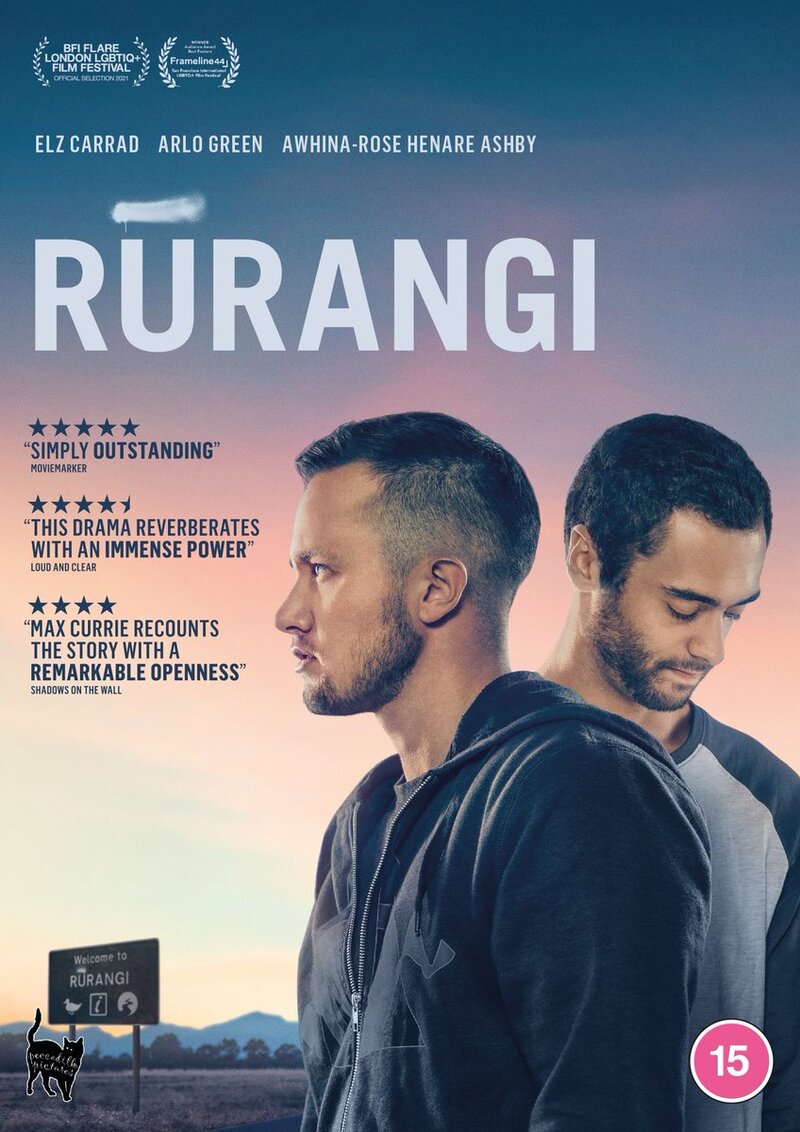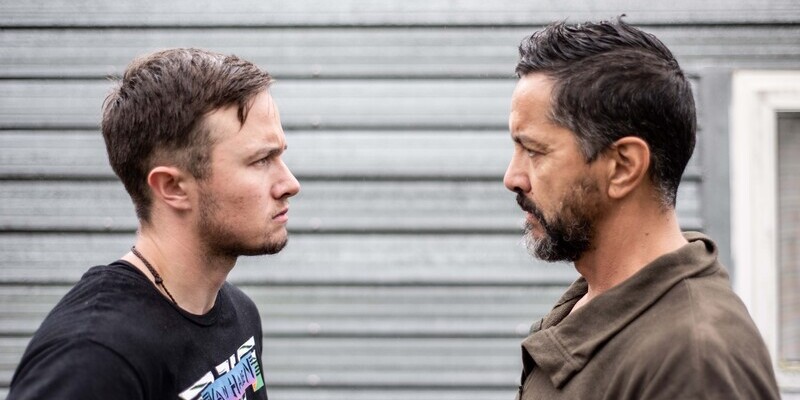
Review by
Benjamin Poole
Directed by: Maxwell Currie
Starring: Elz Carrard, Arlo Green, Āwhina-Rose Henare Ashby, Kirk Torrance

Perhaps the most seismic shift in the left-wing socio-political landscape
over the last 10 years has been the inexorable drift from social towards
identity politics. Was it a Joss Whedon character (boooo, etc) who said
something like, "Evil people will always win, because they share a
singular purpose" - i.e., nothing matters except the shared outcome? It’s
curious. Take the alt-right, with their specific series of targets which
are pursued relentlessly, regardless of how far they understand them or
truly believe the rhetoric. They are an unfortunate force to be reckoned
with because the end game is all that matters; banding together to find
something to blame for the discomfiting inadequacies and fears which
plague them. And then peruse left-wing twitter in all its ignoble
splintering: arguments about who should be cancelled, performative
squabbles over the accidental misuse of a pronoun*, the exhibitory nature
of the platform encouraging virtue signalling of the glibbest kind (the
people I know who are trying to make a real-world difference are far too
busy to tweet about it). Imagine if we properly pulled together!
Meanwhile, the world burns.

Rūrangi (director, Max Currie; writers
Cole Meyers and Oliver Page) opens with estranged Caz (Elz Carrad) returning to the titular New Zealand township. Caz has distanced
himself from Rūrangi since transitioning 10 years ago, implicitly escaping
the tight knit, industrial community and its small-town ideas: a sign for
the remote municipal reads ‘In Milk We Trust’. Following the suicide of a
friend, Caz is returning to patch things up with his dad, who is himself
embroiled in a local land dispute, with the livelihood of the town relying
upon his success with the case.
It seems that Caz is a chip off the old block, as in flashback as a trans
activist we see that he too is socially aware. However, while both men
publicly defend their principles, in private they are privy to rifts. Via
sad exposition, we learn that Caz did not return for his mother’s funeral,
heartbreakingly aware that the presence of a transgender man may well have
shifted the intended focus of the funeral. The pointless divisions which
people allow to occur between each other, and our shared spiritual
destines, is what provides Rūrangi with its dramatic and
thematic tensions.

In this vein, the film explores our responsibility to the community and to
ourselves. Caz is chastised by his best friend for shooting off without so
much as a by your leave, and the film goes on to show how his drama is
impacting the wider troubles which the town faces. The motif of
self-actualisation is supported by Anahera (Awhina-Rose Ashby), who
is learning Māori to honour her heritage, and the theme is further
compounded by the secondary issue of Caz’s ethnicity, as, although from
the same background as Anahera, his light skin ostensibly allows him a
status not commonly afforded to his minority demographic. However, any
approbation which Caz faces from the town regarding his gender transition
is fairly benign, despite his protests that staying there would have ended
in his suicide. There is a running joke about people not recognising him,
but the abiding reaction is one of hesitancy and incertitude, not phobia.
It’s a fair point: after all, this is a working-class community who are
far removed from urban progression. Take Caz’s poor old dad Gerald (Kirk Torrance) - the last time he saw Caz he regarded him as his daughter, and perhaps
is mourning not only the loss of his wife but the child which he believed
he had. The film extends important sympathy for Gerald, which is more
useful than a blanket demonisation (too proud to speak openly, Caz finds
letters which explicate his dad’s confliction - I’m welling up remembering
it!).
Then there’s Caz’s ex-boyfriend Jem (Arlo Green), who is severely,
but kindly, nonplussed to discover that his ex-girlfriend is actually a
fella, one who he retains a lingering attraction for. Could this mean that
Jem is gay, or that love is something which transcends a superficial
sexual attraction? Rūrangi is at its most interesting when
it explores the shifting understandings and prejudices of its characters,
and most winning in its sensitivity towards them.

The film intriguingly began its existence as a mini-series, and it is
interesting (in this age where we are meant to see everything as
‘content’, regardless of its medium) that at times it retains the beats
and pacing of a television show. Perhaps this is the reason why a couple
of plot threads are not fully developed in the way that the expansion of a
mini-series would afford. Nonetheless, with its essential interest in the
goodness of people, Rūrangi is an uplifting experience.

*To be clear, I don’t mean people who don’t purposefully recognise
pronouns, I am referring to the well meaning and open hearted souls who
don’t quite get it yet and are duly ostracised before they can be
educated - a theme which Rūrangi touches upon.
Rūrangi is in UK/ROI cinemas and on
VOD from February 25th.

